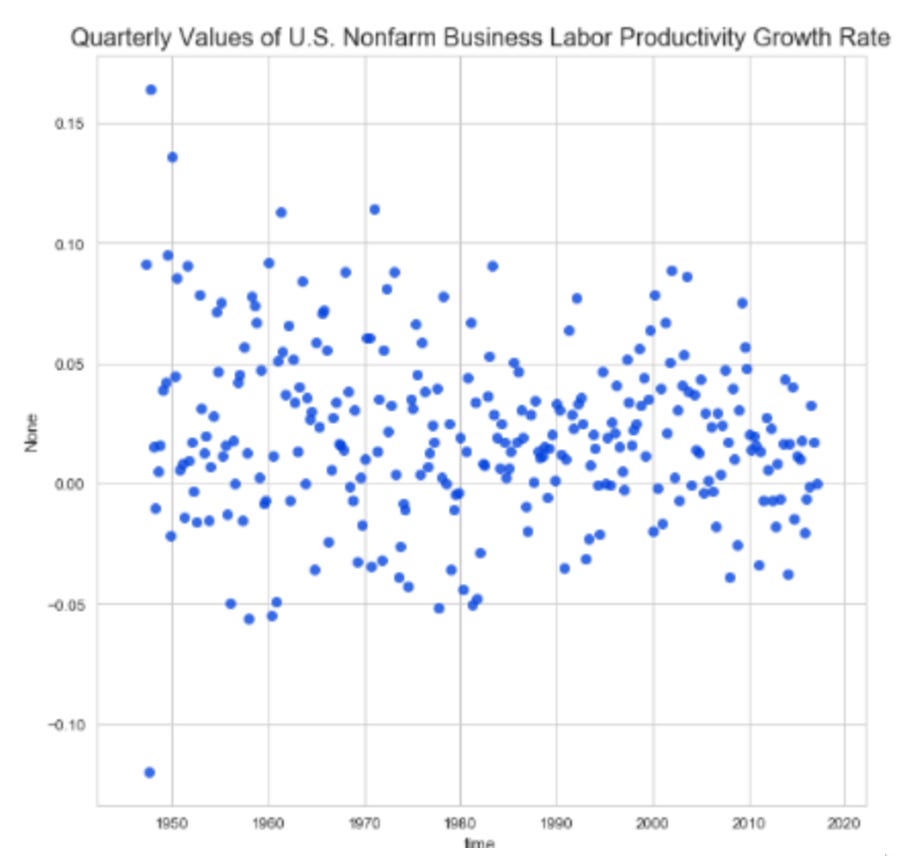As Kevin Warsh’s name rises to the fore as a potential Washington DC powerholder-influencer, we should remind ourselves what whatever technocratic professional analytical chops he had or had have long been subordinate to his self-identity as a professional Republican courtier…
From July 2017: Cogan, Hubbard, Taylor, and Warsh were unprofessional then—pledging allegiance to the Republican High Politicans wanted them to say rather than sticking to whatever guns they had as technocratic professionals providing an an analysis of the situation. Is there any reason to think Warsh will be any more likely to do anything other than say “yes, boss” now?:
The quick and careful Justin Fox is unhappy with—and makes me aware of—this.
All I can say is: unprofessional
I would not have thought that it was an argument that could be maintained by any economist of reputation—even though, as John Stuart Mill once said, “what was affirmed by Cicero… [of] philosophy…may be asserted without scruple of the subject of political economy—that there is no opinion so absurd as not to have been maintained by some person of reputation”. I don’t think that this is an opinion. And the cost to your reputation—I’m looking at you, John Taylor, and you, Glenn Hubbard, and you Kevin Warsh—may well exceed whatever your current positive balance is plus your available credit limit:
John F. Cogan, Glenn Hubbard, John B. Taylor, and Kevin Warsh: On the Prospects for Higher Economic Growth: “Productivity growth declined in the 1970s, rose markedly through the 1980s and 1990s, and fell again sharply in recent years. The data are not supportive of the popular contention that the United States is in the midst of a long-term decline in productivity growth…” http://www.hoover.org/sites/default/files/research/docs/on_the_prospects_for_higher_economic_growth_0.pdf
Here is the post-WWII quarterly productivity growth rate scatter:
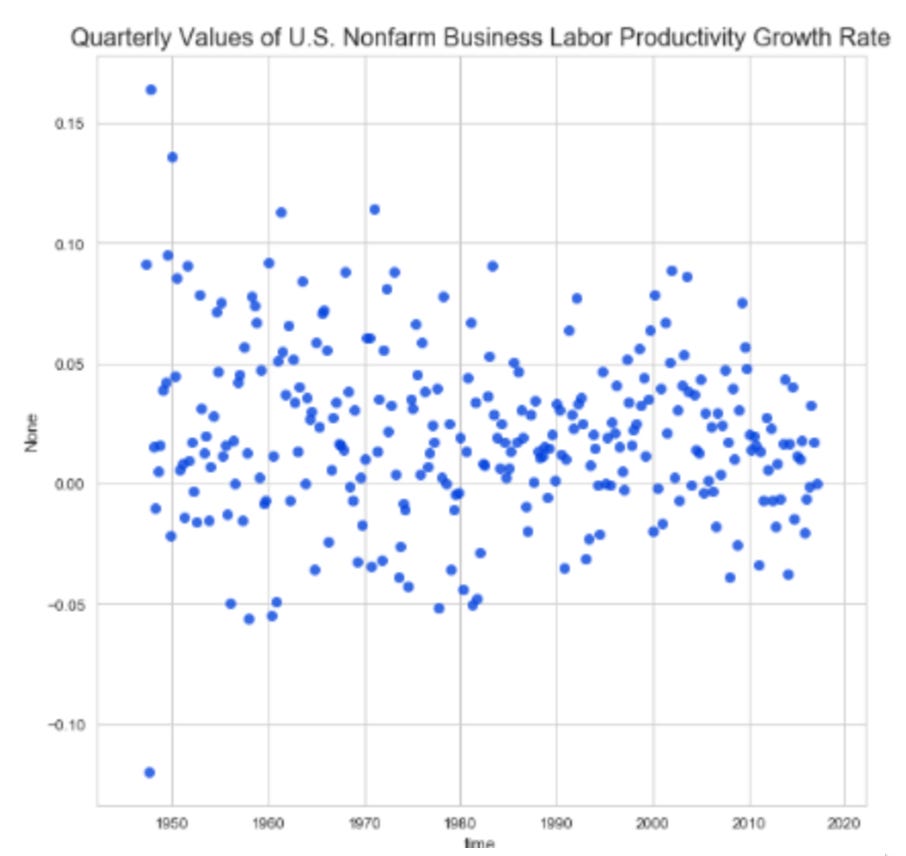
Here is the nonparametric smoothed lowess trend:
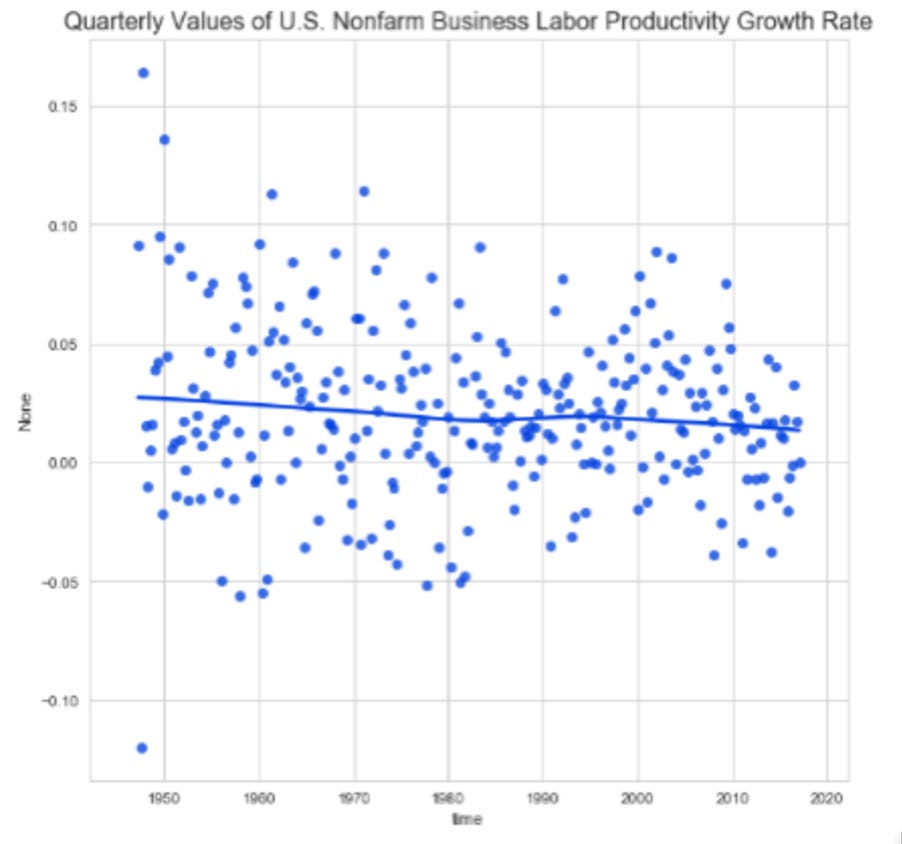
Let’s take a closer look at that:
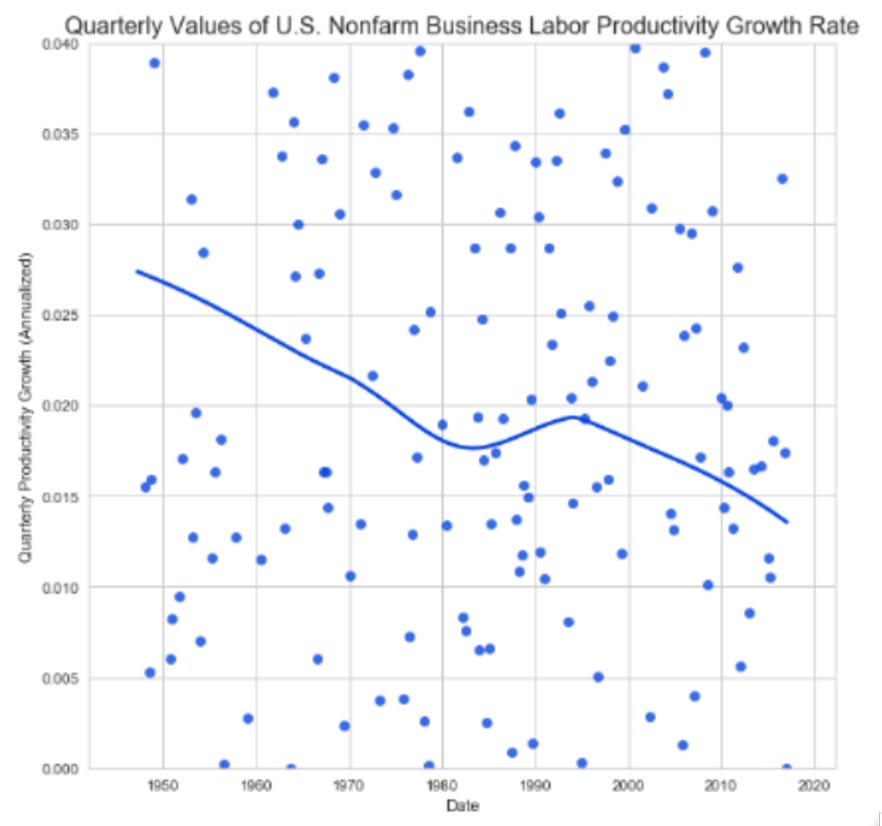
Yes, the U.S. experience since World War II is best characterized as one of a long-term decline in productivity growth, with a recovery triggered by the Information Age that turned out to be (a) temporary and (b) minor. Even if you (for some reason) do not think this, you do not say that you do not think this, lest other people (rightly) conclude that you are a loon.
And if you don’t like the nonparametrics? The linear trend says the same thing:
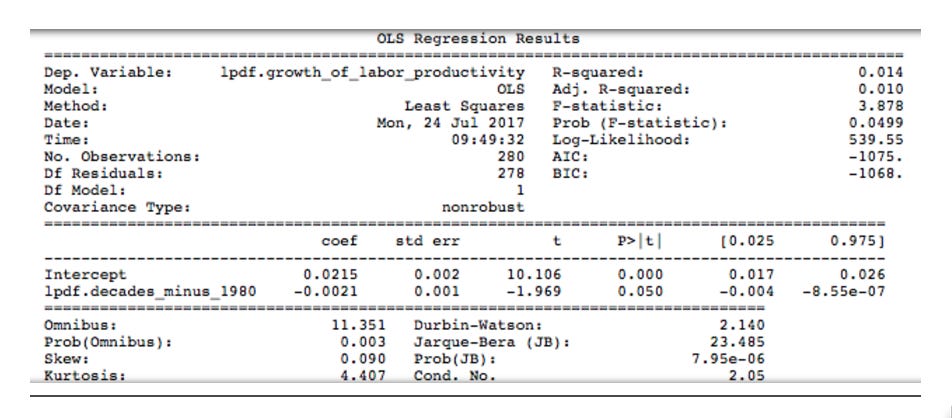
And, of course, Justin has his own fish to fry…
I, however, want to draw a simple line: economists who grossly misrepresent what the basic data say are not economists of reputation.
How do Cogan, Hubbard, Taylor, and Warsh make their case? They don’t do any form of estimation: they simply draw arrows—arrows that do not match any trends that could be estimated—to make you think the data trends are other than they are:
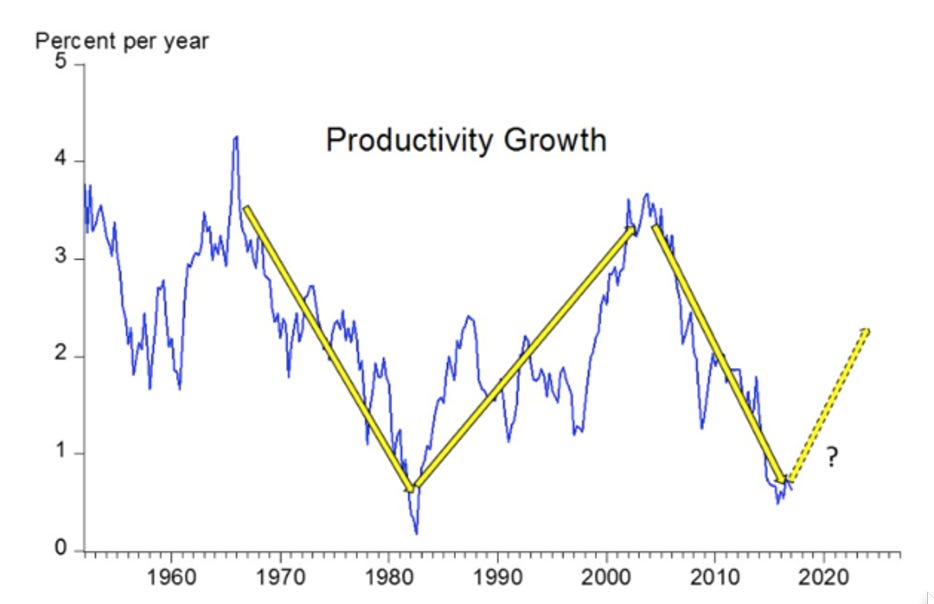
iPython Notebook File: <http://delong.typepad.com/2017-07-23-u.s.-labor-productivity.ipynb>
